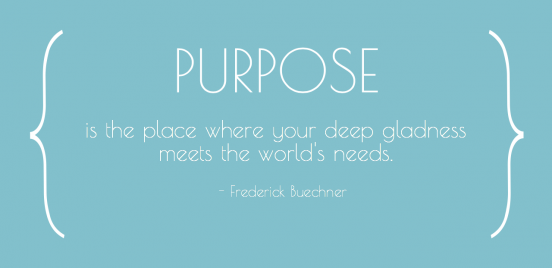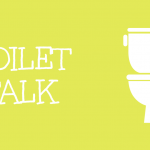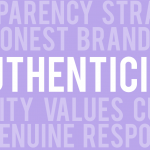Last week I was excited to see an article in Adweek about the power of purpose-led brands. It was a sign to me that sustainability wasn’t just something to aspire to, but part of a huge transformation of the marketing landscape. The author suggested that society was moving from the “love” level of “brand” needs in Maslow’s hierarchy to “self-actualization”. More and more brands are redefining their purpose to be human-centered and intentionally pursuing projects that demonstrate their purpose – this is paying off with double the growth in responsible consumption brands compared to other brands.
One example of a brand that has the opportunity to transform is Spotify. They’ve previously done some great marketing around humorous listening habits and playlists, focusing on the personalization product features. But in the highly competitive market of music streaming, they’re continually working to distinguish themselves.
In the past couple of years, they appointed a Director of Social Impact and are trying to focus more on defining their purpose. Their value proposition is making music seamlessly accessible everywhere, but their core belief is that music has the power to change the world. As a result, they’ve begun to highlight how they can use music to empower people. Some projects include encouraging young musicians to use music to express their views on controversial topics like gentrification and supporting Girls Rock camps to help young girls build confidence.
However, Spotify has faced a lot of criticism about how much they pay artists, and how their streaming model is disrupting the music industry. With a user base of over 100 million, it’s become evident that they’ve got staying power and they’re now in the midst of renegotiating contracts with record labels.The music industry is still adapting to technology, and Spotify is going to play a huge role in defining the value of music and how people access it. I’m interested to see the outcomes of those negotiations because how they treat artists will reflect how committed Spotify is to their purpose.
This class has really helped to expand my definition of purpose in business to be the intersection of what value a brand creates, and how it can impact the world in a positive way. To me, it’s committing as an organization to think beyond profit – to work towards a transformative vision as the world. What other purpose-led brands inspire you?
Since this is my last post – I just wanted to say thank you to Dharini, Tess, and my wonderful classmates. You’ve all made this course an amazing experience, and I’ve been so inspired to take my marketing skills and really change the world! I wish you all the very best as you journey forward.
Other Sources:







victoriayang
April 7, 2017 — 8:30 pm
If you’re interested in reading more, Spotify just renegotiated their contract with Universal Music and are preparing to go public:
http://www.billboard.com/articles/business/7751469/spotify-universal-music-group-deal-who-wins-loses
http://buffalonews.com/2017/04/07/opinion-spotify-deal-umg-just-another-brick-wall/
KatherineApplebaum
April 9, 2017 — 2:50 pm
The music industry is incredibly interesting. With the rise of online streaming and the massive amount of content uploaded online on other platforms (youtube), it is difficult for the artist to make money from people listening to their music. Now, many musicians’ income is coming from live performances. This is evident from the rise in popularity of music festivals and how frequently artists tour. If Spotify renegotiates its contracts to pay the artists more, they wouldn’t have as much money for initiatives like “Girls Rock” (which is so awesome btw). Always a trade off when thinking about CSR.
victoriayang
April 9, 2017 — 6:19 pm
I agree – the shift in the music industry from selling recorded music to paying for live music experiences has been really interesting. But it’s also been crazy to see how the power to create and promote music has shifted from the large record companies to the individual musician, since with digital distribution and promotion musicians don’t necessarily have to get signed by a major label to be famous. As we move forward, I wonder how the power dynamics will shift between Spotify, record labels, and individual artists – if Spotify eventually needs to start signing more individual contracts, their CSR and relationship building might pay off in monetary terms too.